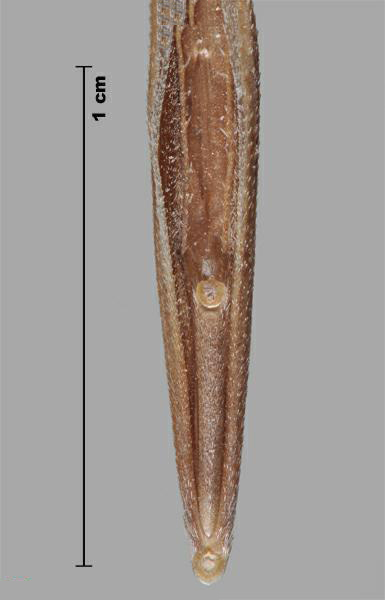Family
Poaceae
Common Name
Medusahead rye
Regulation
Prohibited Noxious, Class 1 in the Canadian Weed Seeds Order, 2016 under the Seeds Act. All imported and domestic seed must be free of Prohibited Noxious weed seeds.
Distribution
Canadian: Absent from Canada (Brouillet et al. 2016Footnote 1).
Worldwide: Native to northern Africa, Europe and western and middle Asia. Introduced to Australia, Chile and the United States (USDA-ARS 2016Footnote 2). In the United States, it is found in the western states and occasionally at other sites in the east, where it may not persist (Barkworth et al. 2007Footnote 3).
Duration of life cycle
Annual
Seed or fruit type
Floret
Identification features
Size
- Floret length: 7.0 - 10.0 mm
- Floret width: 1.75 mm
- Awn length range: 30 - 110 mm (often broken)
Shape
- Floret is elongate, tapering at the top
Surface Texture
- Hard, shiny surface of lemma covered in small bumps with teeth at top and along sides
Colour
- Floret is straw-yellow or yellow; often with a dark stripe down the middle of the lemma
Other Features
- Flat awn appears as extension of lemma with teeth along edges.
- Lemma arches backwards.
Habitat and Crop Association
Rangelands, grasslands, sagebrush communities, woodlands, roadsides and disturbed areas (CABI 2016Footnote 4, Barkworth et al. 2007Footnote 3).
General Information
Medusahead rye is believed to have been first introduced into the United States in livestock fur or in contaminated cereal grain (CABI 2016Footnote 4).
Medusahead rye is competitive and forms dense stands in rangelands, altering their ecology (CABI 2016Footnote 4). Downy brome is a known associate (Bovey et al. 1960Footnote 5).
Similar species
Ripgut brome (Bromus diandrus)
- Similar elongated shape, roughened texture and flat awn as medusahead rye.
- Ripgut brome lemmas are up to 10.0 mm longer than medusahead rye and have a leathery surface texture, while medusahead rye lemmas are stiff.
- Ripgut brome florets and grains are a reddish colour with thin palea teeth, while medusahead rye lemmas are straw-yellow with a dark stripe and stout palea teeth.
Photos
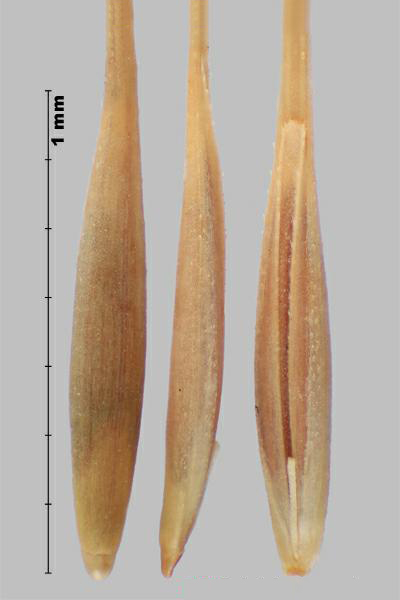
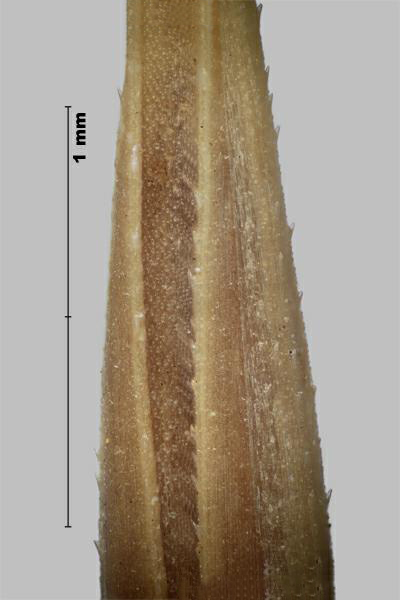
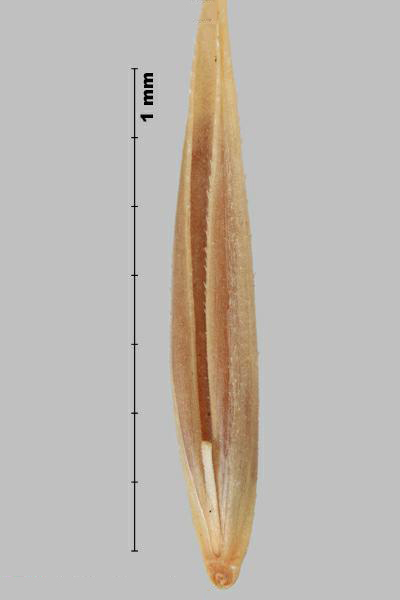
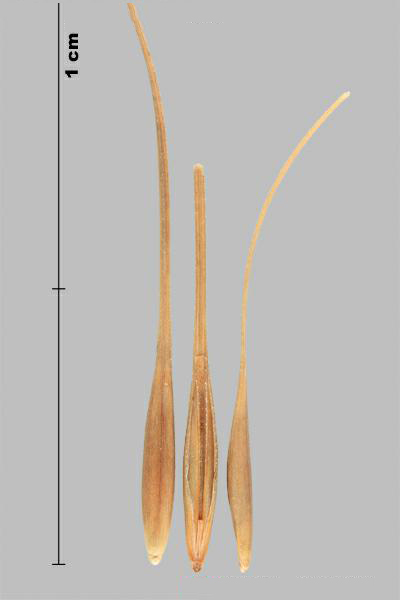
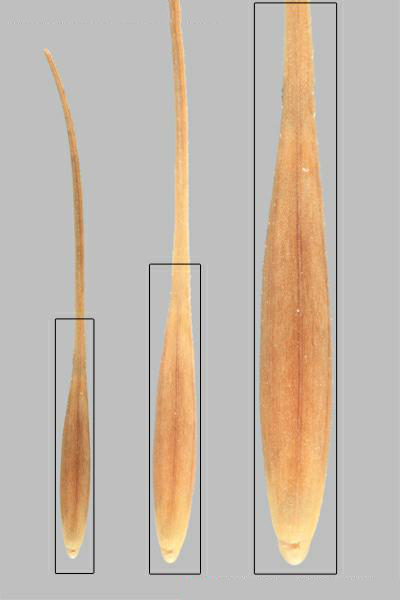
Similar species

